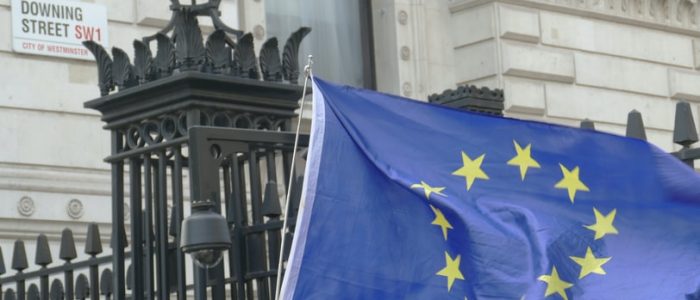Brexit ‘carnage’, destiny and faith

On 1st January, Britain officially transitioned to a new relationship with the European Union on the terms set out in the EU–UK Trade and Cooperation Agreement, agreed in the final days of 2020. In his speech at the press conference that followed, Boris Johnson announced that, “We have taken back control of laws and our destiny. We have taken back control of every jot and tittle of our regulation in a way that is complete and unfettered.” The question that has been asked since 2016 and remains now, however, is: now what? Now that we have ‘taken back control’ of our sovereignty, and our destiny, what will we do with it?
During the same week in which Scottish fishermen held their ‘Brexit carnage’ protests outside, Parliament began engaging with that question. One attempt took the form of the Global Britain debate in Parliament. The Rt Hon Elizabeth Truss, Secretary of State for International Trade, opened the debate with an emphasis on international trade and the need to ‘embrace our future as a confident, optimistic, and outward-looking Global Britain’. Another MP to speak in the debate, however, was Fiona Bruce, who, in her new capacity as the Prime Minister’s global envoy on the human right to freedom of religion or belief (FoRB), took the opportunity to emphasise that a new ‘global Britain’ must be one that has the protection of human rights – specifically the freedom of religion and belief – at the heart of all its policies, including its trade deals. This was an important reminder than any conversation about Global Britain should not focus solely on global trade, but on the sorts of rights, freedoms, and values Britain ought to stand for as it engages in trade, as well as in other forms of global activity.
Another Parliamentary debate this week related to the question of ‘Now what?’ came regarding the launch of a new report on The Policies of Belonging by the think tank Onward. This report is a response to evidence that community is on the decline in Britain, and has been for a long time. It sets out a series of recommendations for the government to take up in order to rekindle a sense of belonging in Britain through giving ‘power to individuals and communities to give back locally, and greater resources to ensure that the most fraying communities have strong reciprocal networks and institutions’. Speaking at the debate alongside Jon Cruddas MP, Danny Kruger MP remarked that, as we reclaim sovereignty from the EU, we ought to transfer it to local people and empower them to make decisions about their own communities. Again, faith communities would be at the heart of such a policy change, as they play such a central role in bringing communities together and working for the common good.
Regardless of what you think of these particular ideas about what is next for Britain, it is clear that we are living in a time of great transition. With the return of sovereignty, and the arrival of enormous challenges associated with getting through this pandemic, comes an opportunity to engage with fundamental questions about what Britain stands for and where it is going – its destiny, if you like – and take immediate actions that can lead to deep, lasting change in light of the answers given.
These conversations should not only happen in Parliament, however. Regarding values and destiny, faith communities have a unique vision and moral grounding to bring to the table, and regarding practical policy changes, in matters from international trade to the devolvement of power, faith communities have rights that need to be maintained, and assets that cannot be ignored. Clearly, whether we are talking about ‘global Britain’, ‘levelling up our communities’, or ‘building back better’, faith will play a vital role in Britain’s future.
At FaithAction, we look forward to advocating for the role of faith communities in Britain at a local and national level in the years ahead. If you have ideas about the role of faith in Britain, whether setting the agenda for the future or making things happen on the ground, get in touch with us at [email protected]. You may also be interested in watching the sessions from our Building Back Better conference, held in November 2020.



